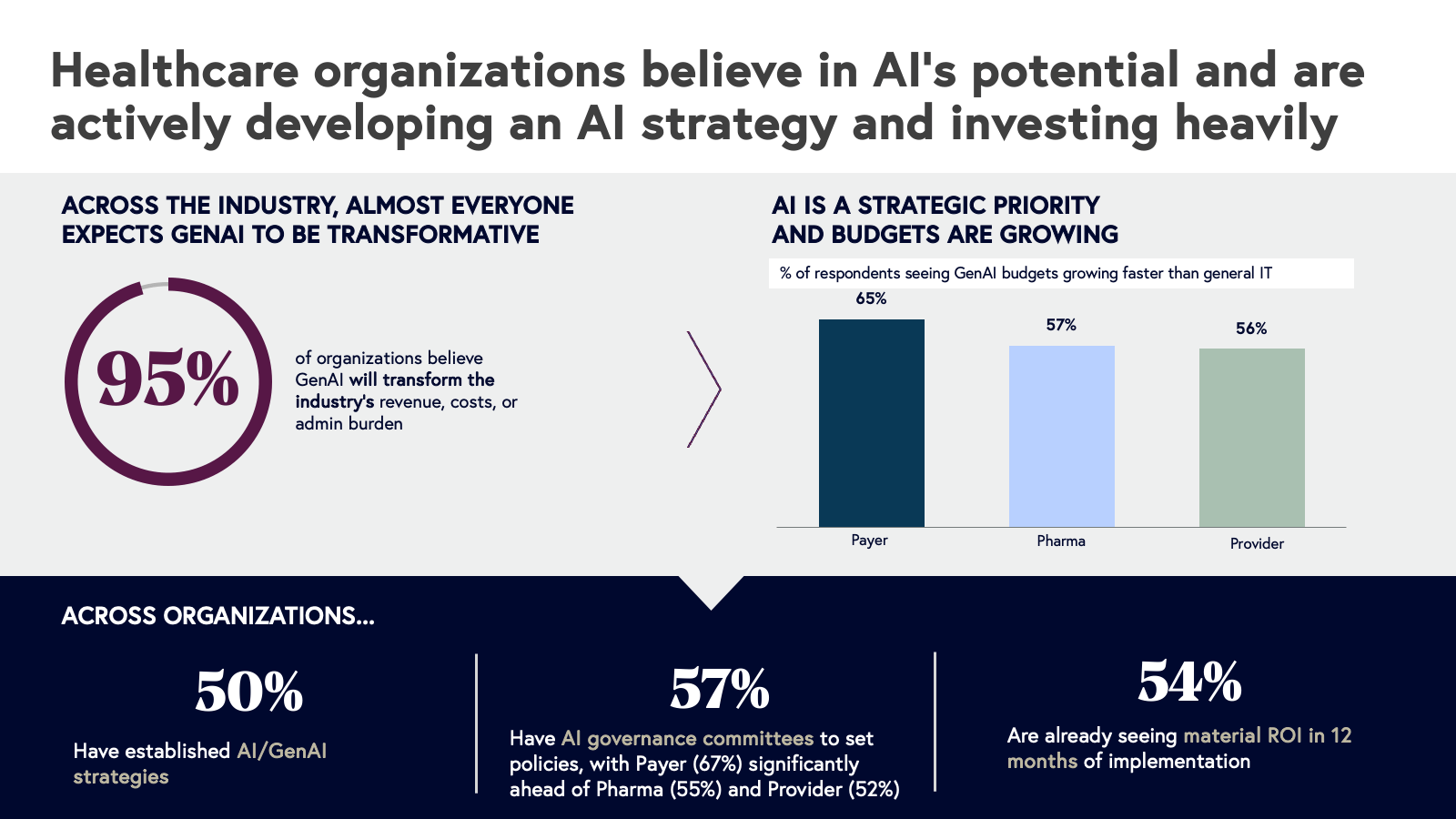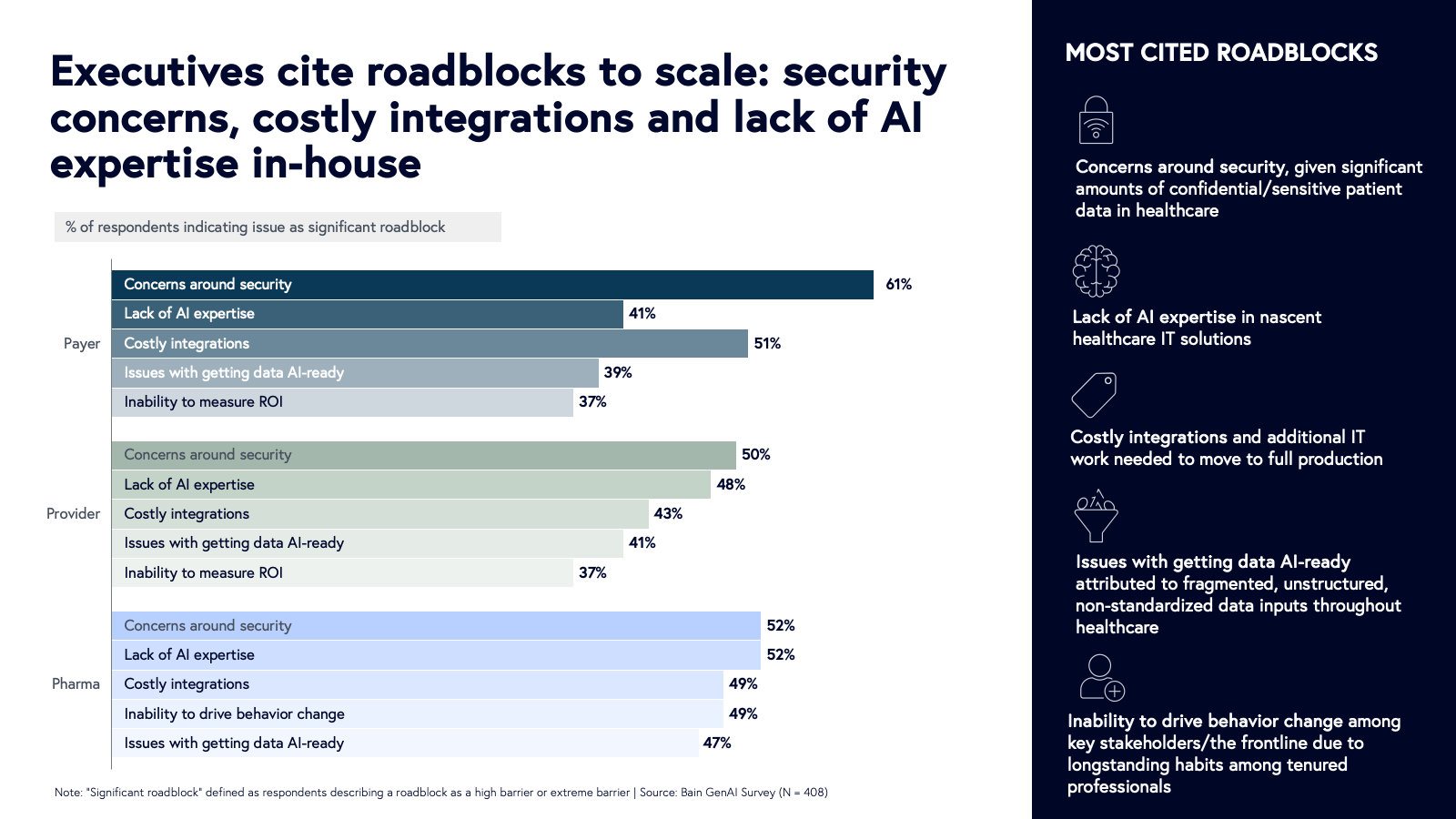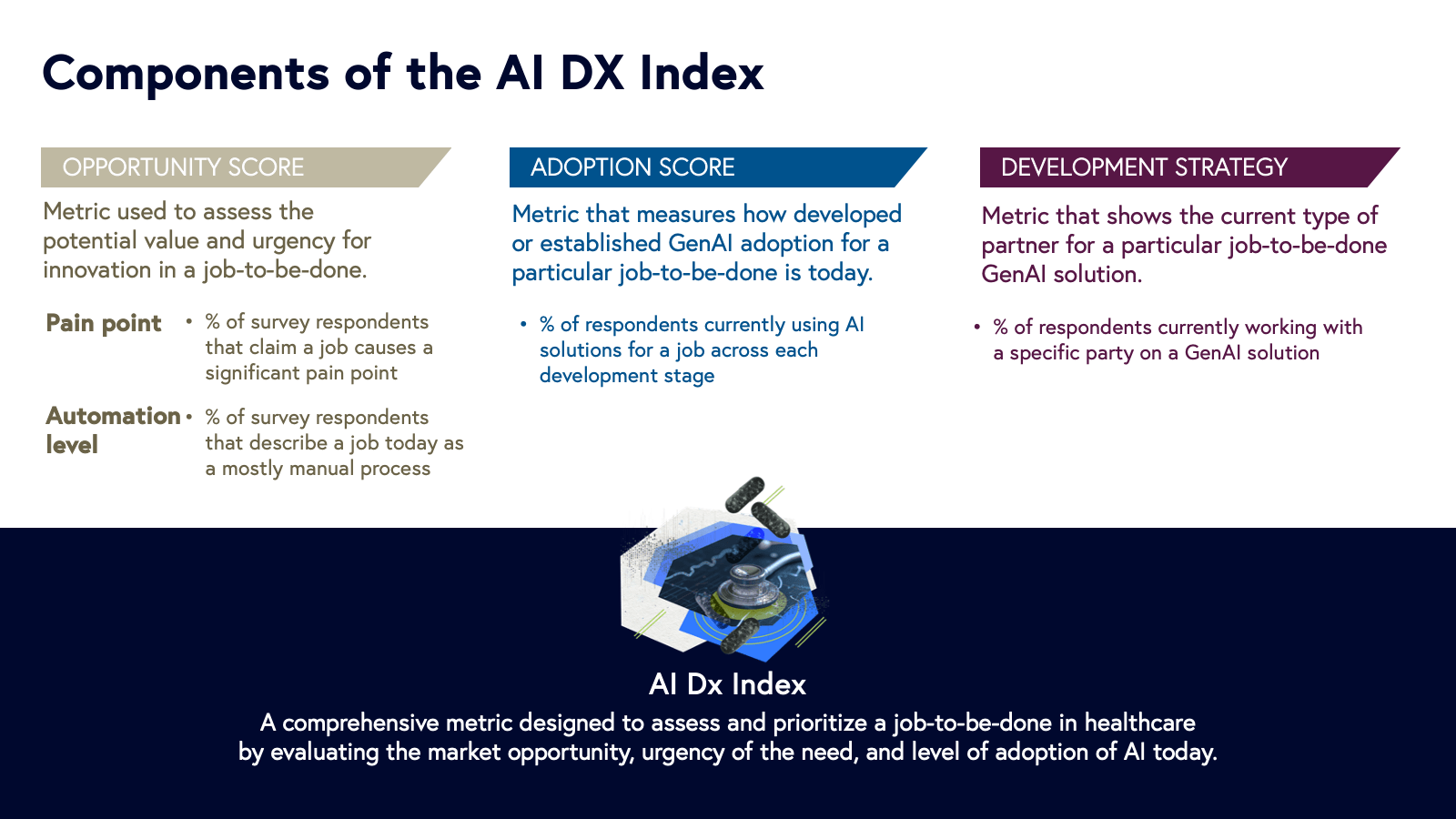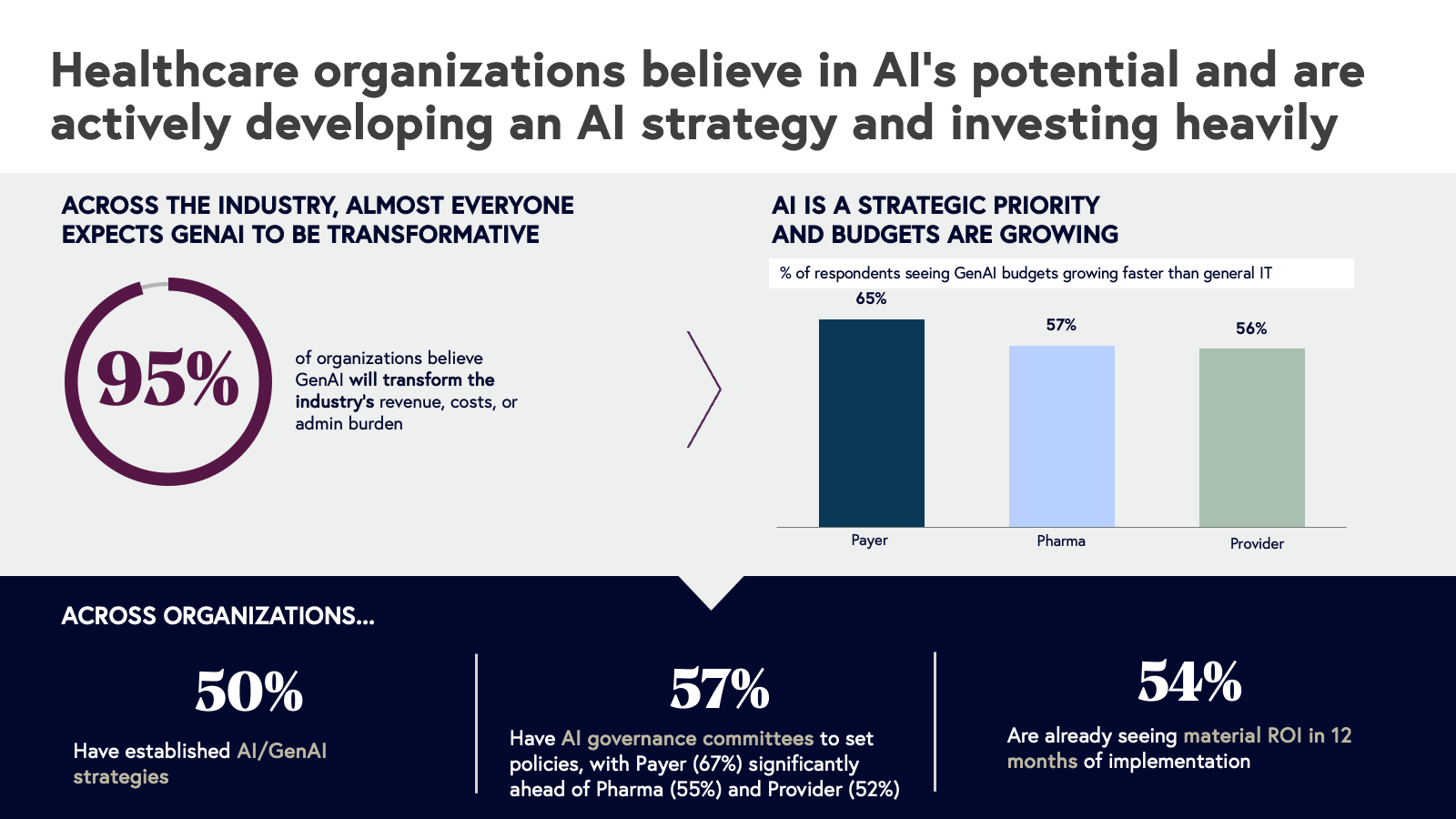The Healthcare AI Inflection Point
The healthcare industry has reached a critical moment in its adoption of Artificial Intelligence (AI), mirroring the earlier transition to electronic health records (EHRs) but unfolding at a much faster pace. Just two and a half years after Large Language Models (LLMs) became accessible to the masses, AI has become a top priority in healthcare, shaping boardroom agendas and fueling startup activity.
Current State of AI Adoption
- 95% of respondents believe GenAI will be transformative
- 85% of Provider and 83% of Payer leaders expect AI to reshape clinical decision-making within 3-5 years
- 84% believe AI will impact clinical decisions
- 80% expect AI to reduce labor costs through automation

Challenges in AI Adoption
Despite the enthusiasm, several barriers hinder the scaling of AI projects:
- Security concerns (61% Payer, 50% Provider, 52% Pharma)
- Lack of in-house AI expertise (41% Payer, 48% Provider, 52% Pharma)
- Costly integrations
- Challenges in preparing AI-ready data

Opportunities for Startups
- Strategic Entry Points: Land with high-impact use cases and expand to adjacent processes
- Prove ROI Quickly: Demonstrate clear financial and non-financial impact
- Co-development: Shift from traditional sales to collaborative development with healthcare organizations
- End-to-End Workflow Reimagination: Position products as comprehensive workflow solutions
- Align Business Models: Create value-aligned pricing models
The AI Dx Index has been developed to help both startups and healthcare buyers identify the most promising use cases. It factors in market opportunity, urgency, and current AI adoption levels.

Conclusion
Healthcare is at an AI inflection point, with co-development becoming a key driver of innovation. The winners will be those that embed deeply into workflows, deliver measurable ROI, and build trust with C-suite decision-makers. As the landscape evolves, both startups and healthcare organizations must adapt to harness the full potential of AI in healthcare.


